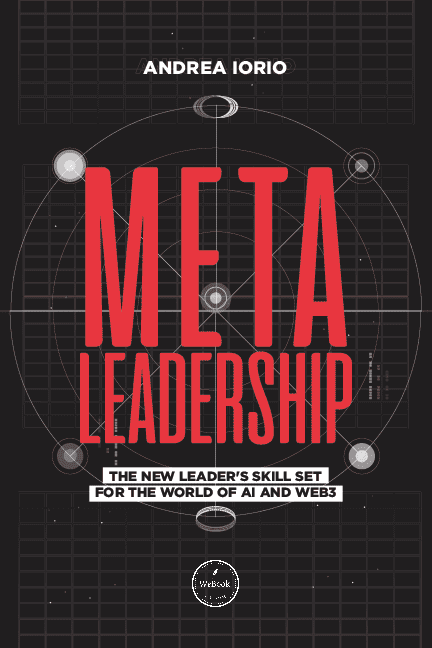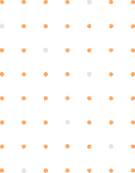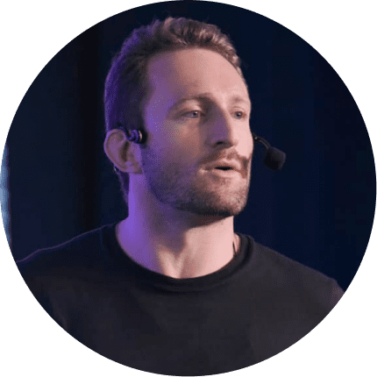Imagine that you are the data scientist at your company, and the board has asked you for a report to make a very important strategic decision that could change the course of your company. You have a few ways to approach this report, and you are undecided between 3 formats. Which of the following options do you choose?
- You insert as many data and KPIs in their absolute values, so that the board has as much data as possible at their disposal to make their decision;
- You put as much data and KPIs in the report, but in percentages, in order to demonstrate the changes that have affected the business in recent times;
- You select some of the most important data and KPIs, mentioning the important KPIs in percentage points and putting to the side an insight into a possible cause of this variability (according to your interpretation of the metric)
Which path do you choose then?
Keep in mind that here is no right or wrong answer, this is just a mental exercise that will even be, in a way, answered with the content of this article. I believe option 3 is the right one, because after all, leadership needs refined data transformed into information and insights, and sometimes too much data can be more confusing than helpful.
That's why we need to learn how to understand hierarchies and categories of data, to avoid getting confused in the face of such data volume. The truth is that in the age of abundance it became more difficult to make decisions, and this article deals precisely with this topic, by analyzing a speech made by Naval Ravikant.

Naval is the founder and CEO of AngelList, as well as a great philosopher and modern thinker about technology and investments. He became famous for his tweet storms about Wealth and Happiness, which we analyzed in episode 57 of my podcast, Metanoia Lab, but since he is also a big investor, you can be sure he knows how to make very assertive decisions. In the next sentence, Naval talks about how to make decisions in the age of digital abundance and infinite access to information:
"First thing is, if I have to make a difficult decision, like 'Should I marry this person, or should I take this job, or should I buy this house, or should I move to this city, or should I do business with this person?", if you can't decide, your answer is no, and the reason is that modern society is full of options, it has many, many options. We live on a planet of 7 billion people, we are connected with everyone over the internet, there are hundreds of thousands of professions and careers available to you, you have so many choices, but you are not biologically prepared to assimilate all these options that exist, because we have evolved in tribes of up to 150 people, where if you don't choose the first option , the second is the only one that happens. Also, because when you choose something, you are stuck for a long time. If you start a business, it's ten years, if you start a relationship, it's 5 years, maybe more, if you move to a city, it's 10 or 20 years, so these are very long-term decisions, so it's very important that you say yes when you're pretty sure. You will never be 100% sure, but you will have good certainty."
(Get to know more about Angel List at: https://venture.angellist.com/naval/syndicate)
The Age of Abundance on our daily basis
A few years ago, I started venturing into the world of investing, and I decided to look for opportunities to become an angel investor in start-ups apps.
After all, I worked on Tinder and knew a lot about creating, scaling, and monetizing mobile apps, and that's how I started networking with startups and founders in the market, to see what could happen.
Over the next two years I invested in 4 apps: Zen, for meditation, Filmr, for video editing, Scorp, a Turkish social network that was kind of a precursor to TikTok, and BrotherTongue, an artificial intelligence language learning application.
In the first two cases, Zen and Filmr, I was sure I wanted to be an investor: when I looked at the numbers, the team of founders, and the product itself, the answer to my question was a resounding "Yes ".
In the last two, Scorp and BrotherTongue, it was more of a "Let's give it a try. Why not?". The truth is they were apps from friends that I trusted, and even though I wasn't 100% sure I wanted to invest, I went along with them because they convinced me to be an investor. In other words, in this case I didn't know how to say no.
The result? While Zen and Filmr were very successful apps both in terms of market growth and in terms of returns for me as an investor, both of which were successful, Scorp and BrotherTongue were a failure.
And what does that have to do with what Naval said before?

The truth is that it has everything to do with it: faced with the indecision of important choices like these, it is always better to say no than yes.
We experience this on our daily basis.
When hiring a new member of our team: sometimes we say yes to someone even though we are not 100% convinced, for example, - and what is the consequence of that? We bond for a long term relationship with an employee who didn't necessarily need to be there with us.
When approving projects: sometimes we say yes to something even though we don't believe in the return, just to show service or to make someone happy, and then it becomes so expensive to pause that you push it with your belly because the "sunk cost", ie the sunk costs, are too high.
The problem with all this?
As we live in the digital age, the age of abundance, assertive decision making is increasingly critical and if we don't learn some heuristics, - ie processes cognitive used in non-rational decisions- , or even better strategies that ignore part of the information in order to make our choices easier and faster, we will run the risk of making the wrong decisions.
Are you familiar with the concept of leverage, of multipliers? Well, you see: the quality of our decisions is fundamental in the modern era, because we are all leveraged. You can leverage yourself through code, audience, media, capital, labor and other ways. If you're smart, you enjoy every decision you make.
If Warren Buffett makes the right decision 85% of the time and his competitors get it right 70% of the time, Buffett will earn a lot more from others. That's one source of his strength: good decision making. He makes one or two major decisions a month, and most of the time he's reading books, thinking, playing bridge, traveling, and playing golf.
But why is it so difficult to make decisions in the age of information abundance? Because just as Naval says, if at the time of the tribes we had only a couple of options, today we have infinite options.
This isn't necessarily a bad place to start: studies have shown that people like to have lots of choices. Decades of psychological theory and research have shown that giving people the ability to choose increases their intrinsic motivation, perceived control, task performance, and overall satisfaction and happiness with life. But many of these studies did another experiment, namely giving people only a limited number of options, which they could easily differentiate and evaluate. Research shows that as the number of options increases, so does the level of complexity of the decision itself. While people are inherently drawn to having lots of options, when it comes to actually choosing from a large number of options, people are often paralyzed and unable to make a decision.
The truth is that, according to Sheena Iyengar, a business professor at Columbia University, decision making involves three distinct mental tasks:
Knowing what you want
Understanding what options are available
Making comparisons between available options
People feel more confident in their decisions when they understand the available options and can comfortably compare and evaluate each one. It is easier to evaluate options when there are only a few of them and they are easily distinguishable from one another. As the number of options increases, the evaluation process can become overwhelming and intimidating, especially when it seems that making a choice requires specialized knowledge or specific skills.
People also feel the need to make the right decision - even when there is no right or wrong answer, and they often feel they need to justify their decisions - both to themselves and to others. In high-choice situations, people are insecure in dealing with the burden of judging the differences between good and bad choices. People are always afraid of making a wrong decision, which can lead to feelings of regret, and we all know how bad it feels to be regretful.
As the complexity of a decision increases, people experience conflict. They are concerned about their ability to properly evaluate the options, making the right comparisons between them, and finally, making the right decision.
Making Better Decisions at The Age of Abundance
A Columbia University study made on the amazing Godiva chocolate had participants select one chocolate from a limited selection of six, or an extensive selection of thirty chocolates. The researchers were primarily interested in understanding people's level of satisfaction with the selection process itself, their expectations about the selection they made - before actually eating the chocolate -, their actual level of satisfaction with the choice after consuming it and their willingness to choose it again at some point in the future. The findings were interesting:
- As participants made their selection, they said they experienced more pleasure in choosing from a range of 30 rather than a range of six options.
- However, participants who chose the range of six options, later reported feeling more satisfied with their choice and were more likely to want to choose again, compared to those who chose from the range of 30 options.
That is, exactly what we mentioned earlier! But what are the decision-making strategies in these cases? When people are faced with an abundance of options, they usually do one of two things to deal with their sense of overload:
They decide not to choose - perhaps handing the decision over to someone else.
They adopt strategies that simplify the decision-making process.
In other words, they either outsource the decision to others, or develop heuristics, as Naval says! Do you realize now the importance of developing heuristics and rules to simplify decision making, in life and in business? Just try to imagine a scenario where most of the employees in the company are so lost when making decisions that they end up postponing important decisions, end up procrastinating, end up pointing the finger at each other saying "Oh, but that was our call to decide". Basically, an environment where there is no clarity about the decision process is a recipe for disaster.
That's why it's important to go back for a moment to the situation I chose to open the article, the report full of KPIs, or the report with fewer KPIs but more insights. Think about it: companies today are increasingly making decisions based on data, but we still have a lot to improve: the Leaders 2020 survey, from SAP and Oxford Economics, reported that only 55% of executives are making data-based decisions - and only 43% in real time. This is a huge trap! Decision making must be distributed across the organization, not concentrated in just a few groups of people. According to a Forrester study, for every hour a product team spends on work, another 48 minutes are wasted waiting for decisions. This equates to over 3.5 hours of “wait time” in an average eight-hour workday.
In other words, it is essential that we learn how to make better decisions in the age of abundance, - and while we increasingly make decisions based on data, we have to apply the same heuristics to this type of decision making! Again, imagine the report and think of a version of it with 30 sales management KPIs present at the same time on the dashboard: even if you have control over the data, you will be confused and probably make the worse decisions. Now imagine this report with 5 KPIs: you may not have control of everything, but at least you can make faster and more assertive decisions.
I wanted to end today's discussion with a practical challenge: open the control report of your own business. That is, the data report on which you make decisions. Try to analyze it: how many metrics do you monitor at the same time? How easy or difficult is it to make decisions from it, based on our discussion? Try to pick the 3-5 most important metrics, and try to make a decision about your business based on what they tell you. Keep in mind that the others you left aside are still important, but they can influence and cloud your judgment when making decisions. How does your decision process change? What kind of heuristics can you create from this new report?
Reflect on this as homework, and tell me about it later.
Keywords Soft Skills: age of abundance Web 3, Metaverse, NFT Leadership, What are Soft Skills in Business, Example of Technical Skill, Technical Skill Examples, Soft Skill Development, Soft Skills for a Job, Business Soft Skills, Soft and Hard Skills, Why Are Soft Skills Important, Necessary Soft Skills, Necessary Soft Skills, Human Skills, Entrepreneurship, Andrea Iorio, Metanoia Lab, Metanoia Club, Meta Leadership, Podcast, Inevitable, KPIS, KPI, AngelList, Brazil, Wealth, Happiness, Zen App, Filmr, Naval, Company, Business,









